Who releases the Informatics Practices Class 11 Syllabus 2024-25?
Every year CBSE releases syllabus for Informatics practices on their official website (www.cbseacademic.nic.in) . Informatics Practices syllabus 2024-25 is published before the start of an academic year. Informatics practices subject is offered to class 11 and 12 students of CBSE affiliated schools in India and the subject is very scoring and easy and those who love to solve problems, have good logical reasoning ability and love to learn basics of programming , must opt for this subject.
Units in Informatics practices Class 11 Syllabus 2024-25
There are a total of 4 units in Informatics practices Class 11 Syllabus 2024-24. There unit wise marks distribution is as follows:
- Unit 1 : Introduction to Computer System (Marks : 10 )
- Unit 2 : Introduction to Python Programming (Marks : 25)
- Unit 3 : Database concepts and the Structured Query Language (Marks : 30)
- Unit 4 : Introduction to Emerging Trends (Marks : 5)
- Theory Exam : 70 Marks , Practical Exam : 30 Marks
Since this is practical-oriented, there will be a theory exam as well as a practical exam which will be conducted at the school level. The final or session-ending exam will be of 70 marks and the practical exam will be of 30 marks. The practical exam will be conducted by subject teacher at the school level and the theory paper will be designed as per the syllabus published by CBSE.
Topics in Unit 1 of Informatics practices Class 11 Syllabus 2024-25
Introduction to computer and computing: evolution of computing devices, components of a computer system and their interconnections, Input/output devices.
Computer Memory: Units of memory, types of memory – primary and secondary, data deletion, its recovery and related security concerns. Software: purpose and types – system and application software, generic and specific purpose software.
Topics in Unit 2 of Informatics practices Class 11 Syllabus 2024-25
Basics of Python programming, execution modes: – interactive and script mode, the structure of a program, indentation, identifiers, keywords, constants, variables, types of operator, precedence of operators, data types, mutable and immutable data types, statements, expression evaluation. comments, input and output statements, data type conversion, debugging.
Control Statements: if-else, if-elif-else, while loop, for loop
Lists: list operations – creating, initializing, traversing and manipulating lists, list methods and built-in functions – len(),list(),append(),insert(), count(),index(),remove(), pop(), reverse(), sort(), min(),max(),sum()
Dictionary: concept of key-value pair, creating, initializing, traversing, updating and deleting elements, dictionary methods and built-in functions – dict(), len(), keys(), values(), items(), update(), del, clear()
Topics in Unit 3 of Informatics practices Class 11 Syllabus 2024-25
Database Concepts: Introduction to database concepts and its need, Database Management System.
Relational data model: Concept of domain, tuple, relation, candidate key, primary key, alternate keyAdvantages of using Structured Query Language, Data Definition Language, Data Query Language and Data Manipulation Language, Introduction to MySQL, creating a database using MySQL, Data Types
Data Definition: CREATE DATABASE, CREATE TABLE, DROP, ALTER
Data Query: SELECT, FROM, WHERE with relational operators, BETWEEN, logical operators, IS NULL, IS NOT NULL
Data Manipulation: INSERT, DELETE, UPDATE
Topics in Unit 4 of Informatics practices Class 11 Syllabus 2024-25
Artificial Intelligence, Machine Learning, Natural Language Processing, Immersive experience (AR, VR), Robotics, Big data and its characteristics, Internet of Things (IoT), Sensors, Smart cities, Cloud Computing and Cloud Services (SaaS, IaaS, PaaS); Grid Computing, Block chain technology.


